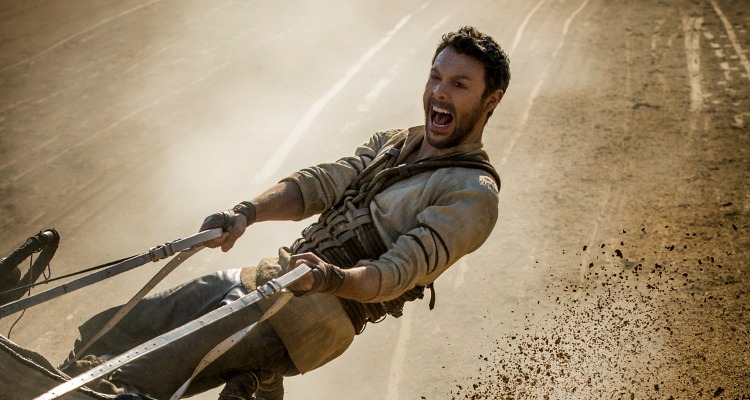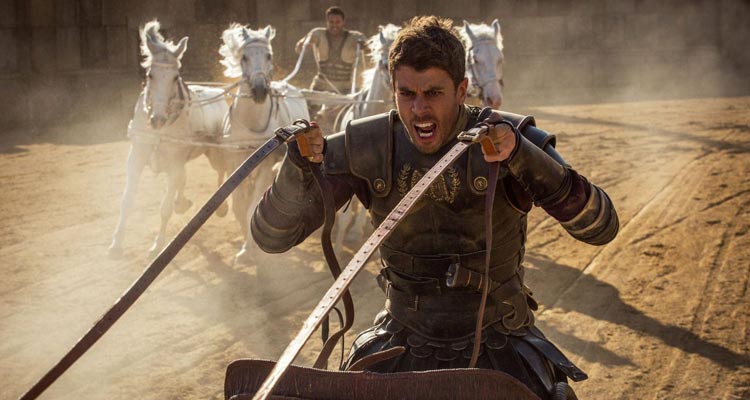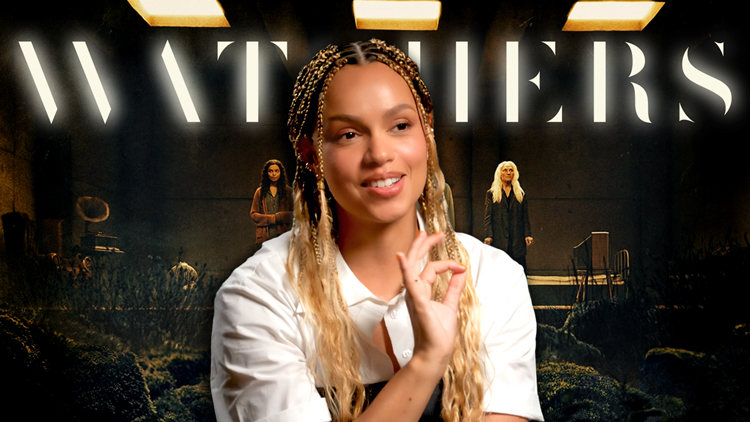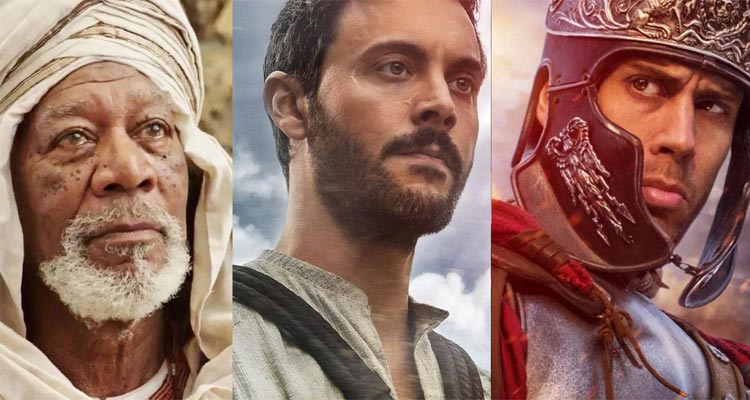A wrongfully accused man faces an empire in his quest for truth, revenge, and ultimately redemption in the new action drama BEN-HUR.
The latest Metro-Goldwyn-Mayer/Paramount Pictures adaptation of the epic story, directed by Timur Bekmambetov (Night Watch, Wanted), features a tremendous cast of young and experienced talents.
I was always to talk to a few of them during a recent press day in LA.

Were you surprised that many small touches, like you spending a moment with a horse, made it into the final cut? In blockbusters, those things are usually the first to go.
Jack Huston (Judah Ben-Hur): Yes, of course. That’s a very good point. I am glad that you actually brought that up. I love horses, I could ride before I walked, basically. There is a scene where Judah sees one of these horses and he knows that it’s dying. I give the horse water and it just laid in my lap. It’s one, 15-minutes long take. I then got up and said “Please tell me that you got that. It was insane!” Our wonderful stunt coordinator Steve Dent -who looked after all the horses- started crying. He said “I have never seen anything like it!” It was amazing. And you are right, that’s one of the first things that they lose. But that’s the heart of the character. His relationship with the horses becomes really important. At the end, when he sees the horse dying, he doesn’t even notice that he has won the race. It’s a beautiful thing.

How important was it for you to make the audience believe that your character would walk away from his family when they need him the most? We know that he had a resentment, but it was a big thing.
Toby Kebbell (Messala Severus): It is a big decision. Of course in the book that we are retelling Messala has this resentment for not being a wealthy boy. “How can this person, that is not my blood, love me that much?” The most interesting thing to play is that he made a terrible mistake at that point. He feels that Judah is not seeing things from his point of view, what it is ironic because he is not seeing things from Judah’s perspective. I had to rescue Pontius Pilate and my career is on the line. I was suppose to come here and be someone that you can respect. That anger and pride is what triggers that terrible decision. The studio wasn’t happy with me being so unlikable at that point. “How can you abandon your family?” But it was important for me to take responsibility, not becoming a villain, but showing that his behavior was bad.

Do you have the expectation that a movie like this can awake something in the viewer?
Rodrigo Santoro (Jesus): I hope so. It’s very hard to talk about a message because people will take what they feel. Human beings are too complex to generalize. But the themes that we discuss in the film are trying to make people not aware of internal values. Things that we all know and aren’t new. In these times, we just went back to barbarity.
Do you think that you have made people better through your art? Is that even an expectation that you have?
Morgan Freeman (Ilderim):
Well, that’s one of those things that you have to be careful with. “I will do this movie because with my abilities people will take notice! I will change the entire world!” No, you just take the job and do it the best that you can. It doesn’t really matter. Actually, for a long time I have been looking forward to playing someone evil who does veeery bad things.
BEN-HUR is now playing in theaters nationwide.
A falsely accused Jewish nobleman survives years of slavery to take vengeance on his Roman best friend, who betrayed him.





